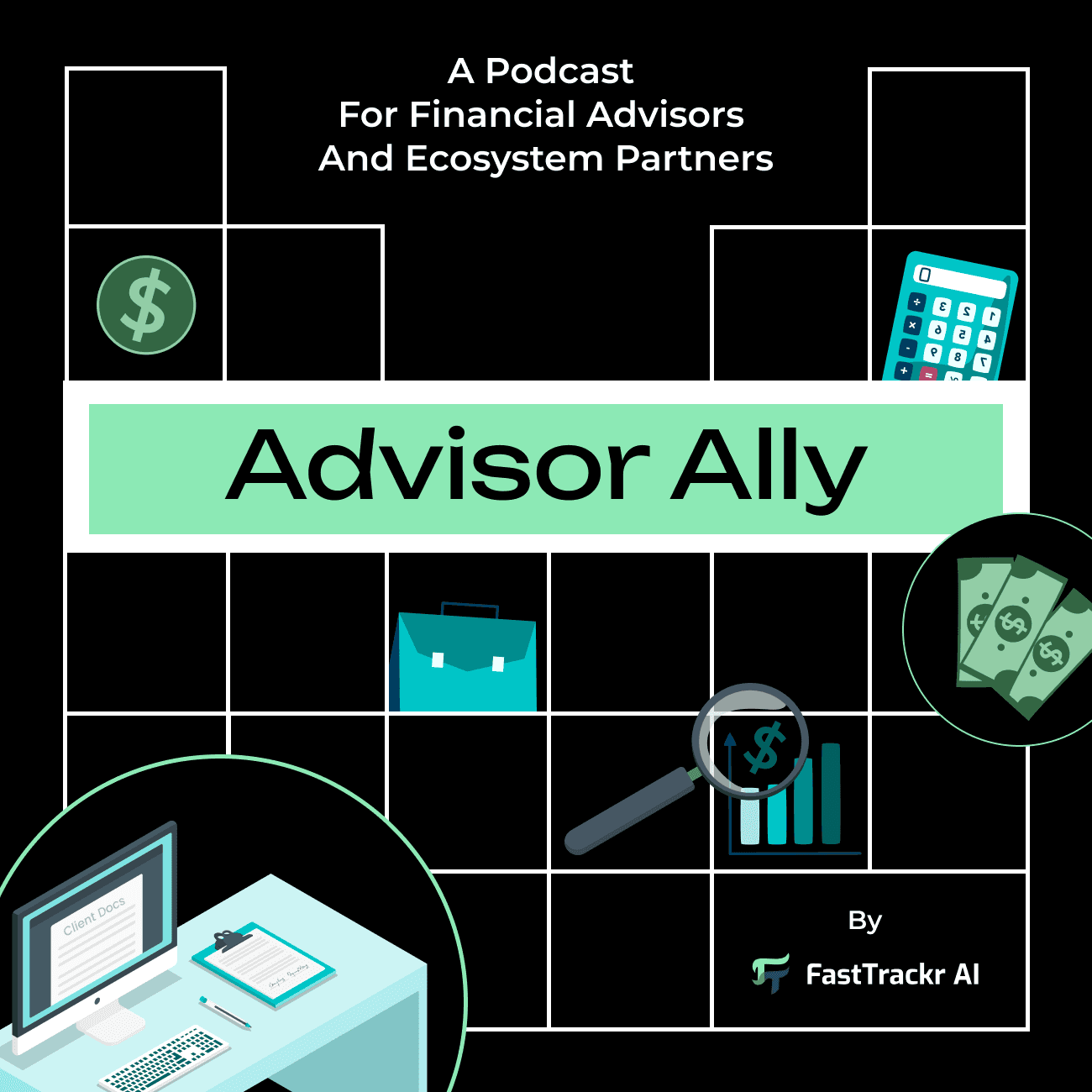
Jul 22, 2025
The Data Gap In Wealth Management
In the wealth management space, advice is everywhere, but understanding is rare. Most advisory platforms today are powered by backward-looking data: portfolio balances, transactions, and risk scores. These inputs make sense to systems, but not to people.
In the wealth management space, advice is everywhere, but understanding is rare. Most advisory platforms today are powered by backward-looking data: portfolio balances, transactions, and risk scores. These inputs make sense to systems, but not to people.
Marla Sofer sat at the heart of the financial services industry. From private banking desks in New York to the vast operating engines of JP Morgan and BlackRock, she saw the inner workings of how capital is managed, products are manufactured, and portfolios are distributed at scale. She’s coded SQL on Wall Street, managed custody pipelines, negotiated fintech partnerships, and helped Microsoft understand how software might reshape financial services.
And yet, after all that, one thing remained stubbornly unresolved.
Despite the incredible machinery built to serve clients, despite the trillions in assets under advisement and the armies of advisors trained to allocate them, the industry still struggles to answer the most basic question:
Who is this client, really?
That’s the question Sofer is now trying to solve with her company, Nomi. It's a behavioral discovery platform designed not to replace advisors, but to make them indispensable again.
The Human Blind Spot in Finance
To understand Sofer’s mission, you have to understand the structural blind spot she’s working to address.
Over the years, wealth management evolved to prioritize portfolio performance, tax efficiency, and planning accuracy. These are important. But they’re downstream. They assume the upstream inputs, the client's values, goals, risk perception, priorities, are both known and stable.
They rarely are.
“We have all these incredible tools,” Sofer explained in a recent episode of Advisor Ally, “but we don’t actually have meaningful, structured information about who the client is.”
What’s even more surprising is how much guesswork is involved. Asset managers design ESG products without knowing whether their clients actually care about sustainability. Financial advisors recommend allocations based on outdated or misunderstood risk tolerance surveys. Whole businesses operate on assumed client archetypes, often inherited from past generations.
“We’ve built an entire industry around products without really understanding people,” Sofer says.
From Allocators to Allies
Nomi is built on a clear thesis: the future of advice is human-centered and behavior-driven.
The platform acts as a client-facing wellness journey. Advisors invite their clients via a URL. The experience feels less like filling out a form and more like onboarding into a gamified, personal values exploration tool. Clients answer questions about what they care about, what life transitions are coming, who else influences their decisions, and how they envision their future.
That data is then translated into clear insights for the advisor, often with AI-generated prompts designed to help guide conversations, not automate them.
Sofer is quick to clarify that Nomi isn’t a dashboard replacement. It integrates with existing CRMs and planning tools. It doesn’t compete with advisors; it enriches them with context they typically never get.
And most importantly, it makes personalization possible, at scale.
Why Risk Scores Are a Red Herring
One of the more compelling critiques Sofer offers is of the industry’s obsession with risk tolerance scores.
“They’re static. They’re poorly written. And they assume humans can predict how they’ll act in a moment of crisis,” she said. “That’s not how psychology works.”
Instead, Nomi approaches risk, and decision-making more broadly, as something fluid. It adapts over time, changes based on context, and reflects not just financial capacity but emotional readiness and social environment.
This is a key insight. In a world where clients expect hyper-personalized experiences in nearly every other area of their life, traditional financial profiling tools feel not only outdated, but lazy.
The AI Imperative
Artificial intelligence threads through this story, but not in the way one might expect.
Sofer doesn’t position Nomi as an AI company. She sees AI as a multiplier, only valuable when built on a foundation of differentiated data.
“If all you feed it is portfolio balances and transactions, then your AI recommendations will be as generic as what a client can get from ChatGPT,” she warns.
This is what she sees as the existential threat to advisors today. Not robo-advisors. Not fee compression. But the risk that clients will realize their advisor isn’t offering anything that can’t be automated.
To avoid that future, Sofer argues, advisors need to double down, not on product, but on relationship capital. And Nomi exists to give them the tools to do that.
Industry Conditioning and the Cost of Reinvention
Sofer is well aware of how difficult this transition will be for the average RIA.
Many advisors built successful practices around allocation, product sales, or retirement simulations. Few were trained to talk about values, legacy, or emotion. Shifting from product-centered to person-centered work isn't just a new workflow, it’s a mindset change.
It’s also an uphill battle against industry conditioning.
“We’ve all been taught to think a certain way about clients,” Sofer says. “Disrupting that isn’t easy, even when the logic is clear.”
But the shift is happening. Financial planning has gone from niche to necessary. CFP certifications are rising. Younger generations demand purpose-aligned investing. And intergenerational wealth transfer is already underway, often without the original advisor’s involvement.
As Sofer points out, “The next generation isn’t waiting for their parents to die. They’re already managing their portfolios, and firing the advisors who don’t get them.”
A Tool, Not a Crutch
For all the structural insight Sofer offers, her thesis is built on something deceptively simple: trust.
Technology won’t replace advisors, but it will replace those who don’t adapt.
AI can help advisors scale, but it can’t help them connect, not unless it’s powered by the kind of context that only comes from intentional, behavior-driven discovery.
This is where Nomi slots in. Not as another fintech app. But as a new layer of understanding between humans and their money.
Because in the end, as Sofer says, “The best financial advice doesn’t start with what someone owns. It starts with what they care about.”
And that’s a benchmark worth building around.







